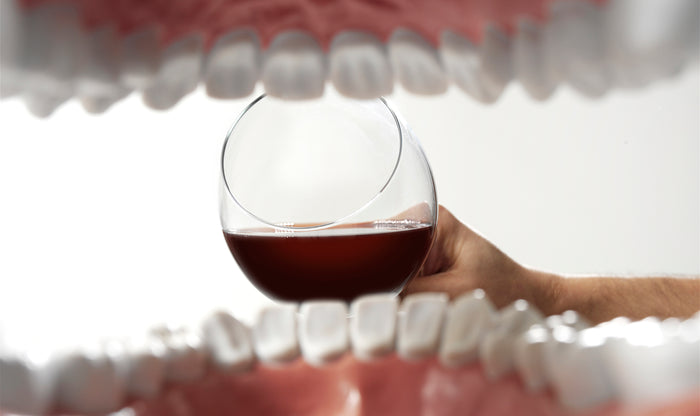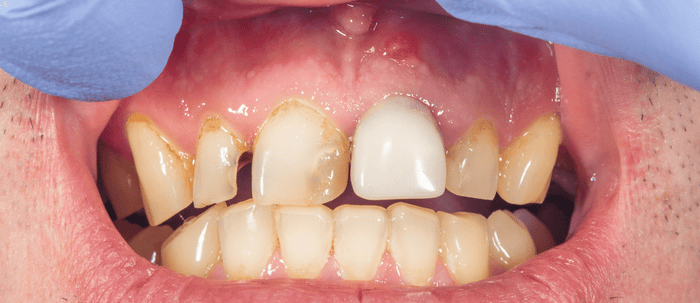Alcohol and Your Oral Health

The odd beverage here or there won’t cause too much lasting damage to your body, but it’s important to be aware of the ways in which alcohol affects your oral health - if only so that you can make wiser choices and mitigate the ill-effects! Keep reading to discover the issues that alcohol can cause in your mouth, and our top tips for reducing these so that you can continue to live your best sociable life…
Sneaky Sugars
Even if your drink of choice doesn’t taste noticeably sweet, it contains more sugar than you might realise! Alcohols made from fruit, such as wine or cider, or with carbonation, such as beer, contain a lot of sugar. Sugars promote bacteria and acid to collect in the mouth, reducing the strength of your surface enamel and causing long-term damage such as tooth decay. This is only exacerbated by spirits that are mixed with soft drinks - rum and coke, for instance, contains around 21 grams of sugar, which is equal to around four teaspoons!
Active Acidity
Wines and spirits also contain high levels of acid, which also cause erosion of tooth enamel, as well as creating the perfect environment for bacteria to penetrate the surface of your teeth and cause cavities and heightened sensitivity.
Desert Dryness
High alcohol content has also been shown to dry out the mouth, and reduce saliva production. Saliva is very important to oral health as it helps to wash bacteria, acid, and sugars off from the surface of your teeth. However, lowered saliva production allows these harmful components to cling to your teeth and gums and causes erosion!
Seeking Solutions?
The first thing you can do to help yourself achieve better oral health is to choose your beverages carefully: if you enjoy wine, opt for a dry rather than sweet variety, as this can make up to 5 grams difference in sugar content. The best alcohols are plain, clear spirits, such as vodka or gin, however once these are mixed with juice or soft drinks they become more harmful than a pint of beer.
Whatever you decide to drink, follow these two crucial rules to keep your oral hygiene at its best:
- Hydrate!
The more water you drink, the more saliva will be produced in your mouth, and the better protected you will be against harmful bacterias and acids - this also has the added benefit of staving off unpleasant hangovers, so it’s an all-round winner!
- Maintain your routine!



